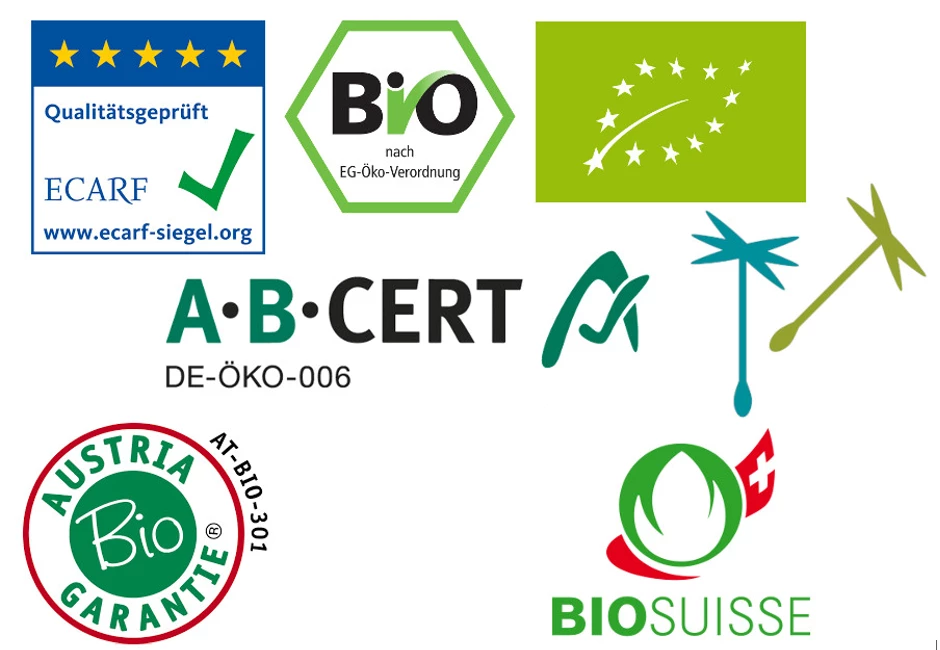organic certificates / eco-labels
- ABCERT
- Austria BIO Guarantee
- BIKO Tirol
- Bio Austria
- Bio Inspecta
- Bio Suisse Knospe
- Bioland partner
- Blue Swallow
- DEHOGA environmental check
- Demeter partner
- ECARF
- Ecolabel
- EHC certificate
- Specialist Society for Organic Control
- Focus-Future
- Assured sustainability
- GfRS
- Green Chefs
- Green Globe
- Green Hotels
- GreenSign
- Green Spa Partner
- Green Hood
- green stamp
- GWÖ
- member of the BIOHOTELS® association
- National Park/NatureParkPartner
- Ökobonus partner
- partner company BIOHOTELS®
- PCU Germany
- Prüfgesellschaft Ökologischer Landbau mbH
- SLK Biocontrol
- Viabono
Organic products meet food law standards that go beyond those of conventional products. The term "organic" is a term protected throughout the EU by the EC Organic Regulation. Products that are labelled or described as organic must therefore meet the criteria of the EC Organic Regulation.
on the Bio-AHVV regulations in Germany
What exactly is an organic certificate?
An organic certificate or eco-label is a quality and test seal used to identify products from organic farming. To ensure that producers comply with the criteria , there is a documentation requirement and regular testing of samples of organic products by the relevant organic control body. When an association seal is used, either additionally or exclusively by the respective cultivation association.
In many European countries, including Germany, there are state organic labels. There are also some private labels that go beyond the requirements of the EC organic regulation and sometimes have stricter requirements. These include the organic standards of the farming associations Biokreis, Bioland, Demeter and Naturland.
There are a number of organic certificates, but we cannot list them all here. We limit ourselves to the organic certificates that are represented by our members.

.png)